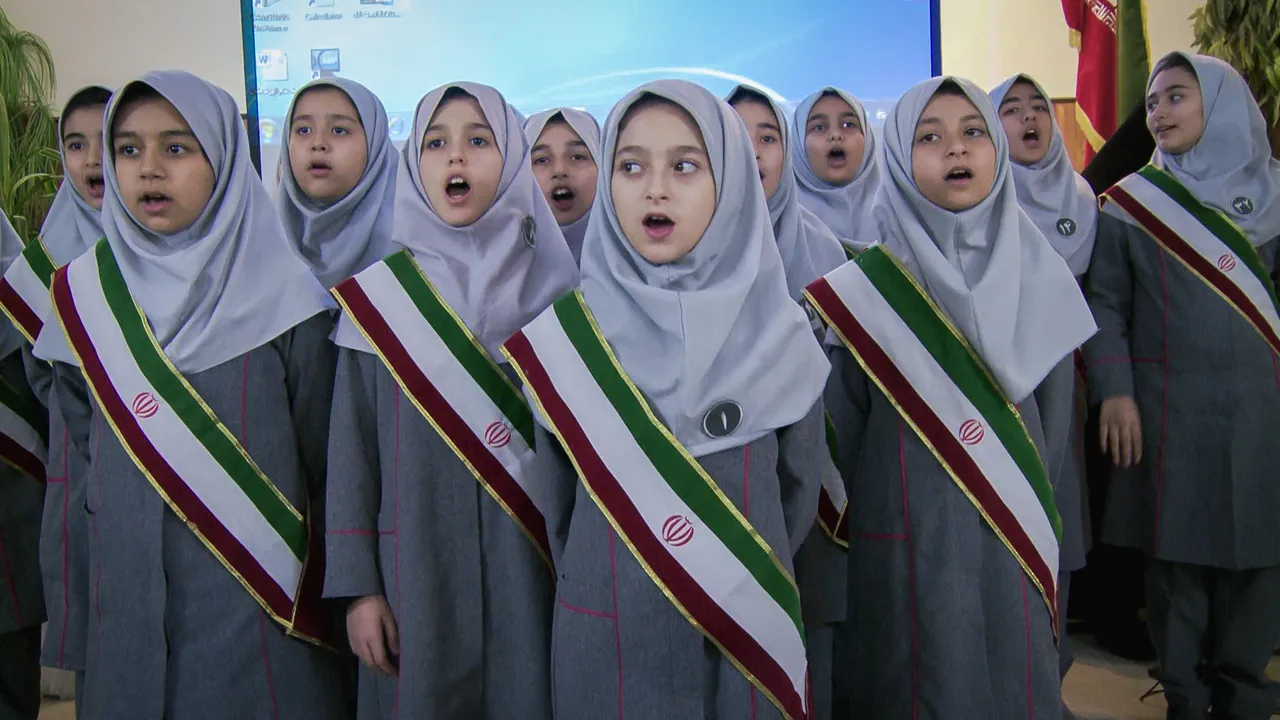All My Sisters
All My Sisters
VERDICT: Tracking his nieces for two decades, documentary maker Massoud Bakhshi assembles a quietly subversive, deeply personal insider portrait of gender politics in Iran.
Patience is a virtue that delivers rich rewards for film-maker Massoud Bakhshi, who collected footage for his latest documentary over an 18-year timespan, tracking the progress of his two nieces from sweet toddlers to smart young women wrestling with the repressive gender politics of contemporary Iran. All My Sisters is driven by a simple but effective concept, unfolding almost like a non-fiction version of Richard Linklater’s decade-spanning family saga Boyhood (2014). It has the slight feel of a home movie in places, and carefully avoids directly criticising the current Iranian regime, perhaps mindful of potential screenings to domestic audiences. But this unorthodox feminist coming-of-age story, which world premieres at IDFA in Amsterdam this week, is still an engaging and quietly subversive blend of personal and political.
Bakhshi explains his methods in an opening voice-over message to his nieces Mahya and Zahra, who are now university students on the cusp of turning 20. He explains how he has used camera zooms, edits and studio tweaks to mask any glimpses of adult female hair or bare flesh, the same coy techniques routinely deployed by Iranian state TV. As these two young women review a montage of their lives so far, the director also offers them space to pause the video, comment and interpret. Rich in potential, this is a clever stylistic gimmick that other documentary makers should adopt. That said, the sisters prove far too politely respectful to critique their uncle’s work, which slightly undermines his inspired notion of turning the film into a lively dialogue between director and subjects.
The first half of All My Sisters is mostly a tender, funny celebration of childhood innocence: Mahya and Zahra eat cakes, play with dolls, dance and sing and ask goofy questions, just like kids all over the world. But as puberty approaches, the religious strictures of wider Iranian society begin to limit their lives. Bakhshi films the girls trying on headscarves and full-body chadors for the first time, aged eight or nine. Long before adolescence, they learn to cover their “sinful” hair and hide their bodies. At school, they sing patriotic sons and celebrate the grisly fate of ancient Islamic martyrs.
Internal family tensions also play a role. Heard off screen but never seen, a conservative grandmother gives increasingly prominent moral instruction the sisters, warning them against listening to pop music. “Your father wants to send you to hell,” she cautions. “A reader of the Quran doesn’t do such things.” Even as pre-teens, the girls demonstrate an astute grasp of theological ethics: “Granny wants God to love her,” Zahra frowns, “but God loves everyone.”
Fatefully, the women hit their teens in 2022, just as the deeply suspicious death of 22-year-old Mahsa Amini in Iranian police custody triggers a wave of national protests and worldwide outrage. Mahya and Zahra, now joined by their new little sister Maleka, bravely lend their voices to the “Women, Life, Freedom” movement, penning protest songs and shouting angry solidarity slogans from the rooftops. When their mother, also unnamed and unseen, tells them to abandon their futile rebellion and focus on personal goals, Mahya tells her “privileged people owe their comfort to those who struggled.” The Iranian regime inevitably cracks down on the protests, killing at least 500 people and detaining over 20,000.
For a documentary rooted in such spiky current issues, All My Sisters feels a little underpowered in places. The meta-textual framing device is a great idea, serving almost as a allegory for how self-conscious and guarded women must be in a deeply patriarchal society, but it is underused for much of the film. More directly interactive input from Mahya and Zahra themselves would could have bolstered a story which is, at its heart, about a rising generation of outspoken women and girls who hope to reshape the wider sociopolitical narrative in Iran.
Thankfully, this stop-start device figures more prominently in the film’s later stages, which includes more self-aware commentary from the sisters. In a lyrical final sequence, which follows the girls as they visit the mountains overlooking Tehran, Bakhshi adds digital fog effects in case the footage ever screens in public and “unknown men” view their uncovered hair. This is a smart use of technology to make a wider political point, both absurdly funny and achingly poignant.
In 2025, the murderous Iranian regime remains firmly entrenched, and still executes more women than any other nation. Even so, All My Sisters ends on a cautiously optimistic note, with Bakhshi noting how wearing the hijab is no longer widely enforced, partly thanks to defiant young women like Mahya and Zahra. They are the real future of Iran. Hopefully a sequel film about their lives, 10 or 15 years from now, will provide a more decisive happy ending.
Director, screenwriter, cinematography, sound: Massoud Bakhshi
Editing: Hayedeh Safiyari, Jacques Comets
Producers: Alexander Dumreicher-Ivanceanu, Bady Minck, Eric Lagesse, Mohammad Farokhmanesh, Massoud Bakhshi
Production companies: Amour Fou (Austria), Sampek (France), Brave New Work (Germany), Bon Gah (Iran)
World sales: Pyramide, France
Venue: IDFA (International Competition)
78 minutes
In Farsi

